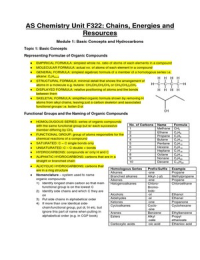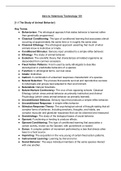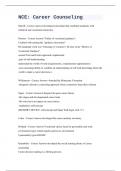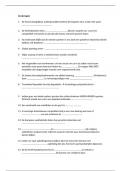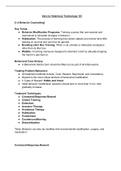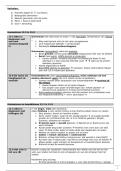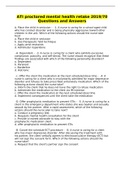Samenvatting
Summary OCR Chemistry F322 PDF
- Vak
- Instelling
Notes made based on: CGP AS and A2 OCR Chemistry textbook OCR AS Chemistry Student Book OCR Specification Basically a condensed version of all of these cutting out the BS that's not needed; learn these by heart and do some past papers and that grade A/B is yours. I used these for the July 2015 C...
[Meer zien]
